
Photos Of How People Celebrated Juneteenth 100 Years Ago
On Thursday, President Joe Biden signed a bill designating June 19th, also known as Juneteenth, as a federal holiday. Black communities in different parts of the country have recognized Juneteenth for a long time, but more recently it has turned into a national reckoning.
“Juneteenth has become a moment for the nation to recognize the end of slavery, or an end of slavery,” said Dr. Brian Purnell of Bowdoin College in an earlier interview with BuzzFeed News. Purnell has written a book about Black resistance outside of the American South and contributed to Brooklyn Resists, a public history project on display at the Center for Brooklyn History this month.
The Civil War ended in April 1865 when Robert E. Lee and the Confederacy surrendered. Before that, Congress ratified the 13th Amendment, which ruled slavery unconstitutional. “As the story goes, there are parts of Texas that didn’t learn about the end of war until later that summer in 1865. There was a Black American communal recognition, mostly in those parts of Texas and the South, who recognized Juneteenth, June 19th, as the end of slavery,” Purnell told BuzzFeed News. “There is no nationally recognized moment where this country takes a pause and says, you know what, this country enslaved people, broke up families, in perpetuity for generations. Juneteenth is becoming a time when the country can do that.”
Here’s a look at how Juneteenth was celebrated long before it was nationally recognized as a holiday.
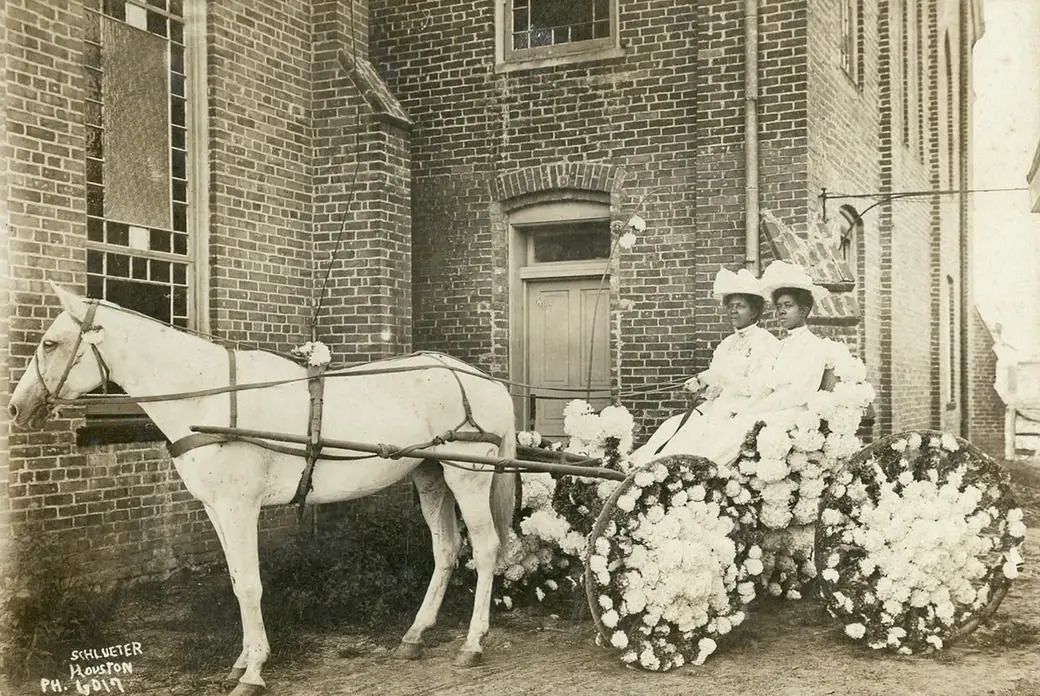 Martha Yates Jones (left) and Pinkie Yates (right), daughters of Rev.
Jack Yates, in a decorated carriage parked in front of the Antioch
Baptist Church located in Houston's Fourth Ward, 1908.
Martha Yates Jones (left) and Pinkie Yates (right), daughters of Rev.
Jack Yates, in a decorated carriage parked in front of the Antioch
Baptist Church located in Houston's Fourth Ward, 1908.
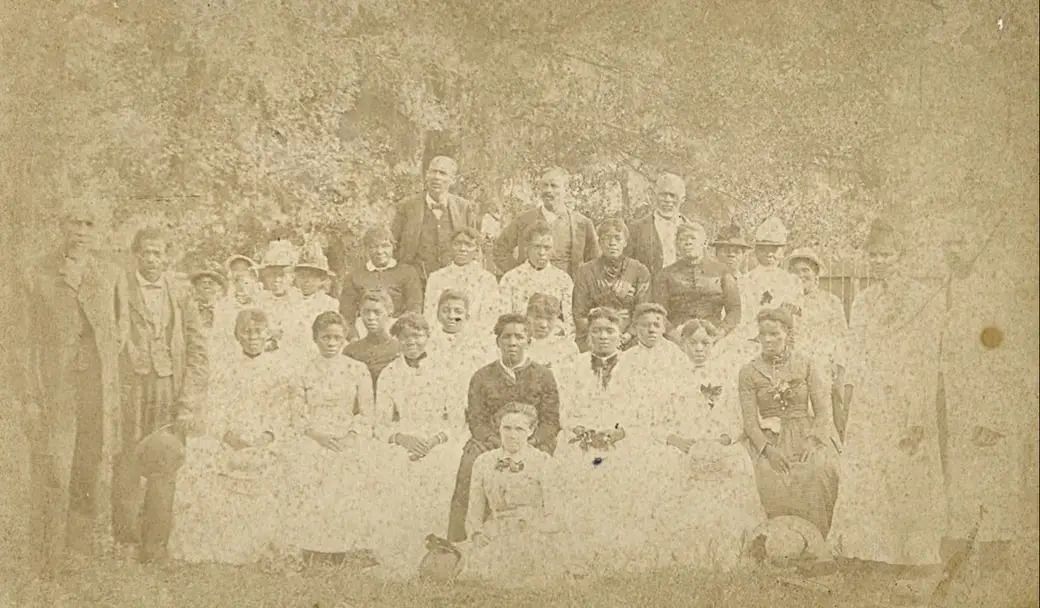 Group on Emancipation Day, circa 1880s, in Houston's Emancipation Park.
Reverend Jack Yates, who led the community purchase of the Park in 1872,
is pictured on the far left, and his daughter Sallie Yates dressed in
black in the center.
Group on Emancipation Day, circa 1880s, in Houston's Emancipation Park.
Reverend Jack Yates, who led the community purchase of the Park in 1872,
is pictured on the far left, and his daughter Sallie Yates dressed in
black in the center.
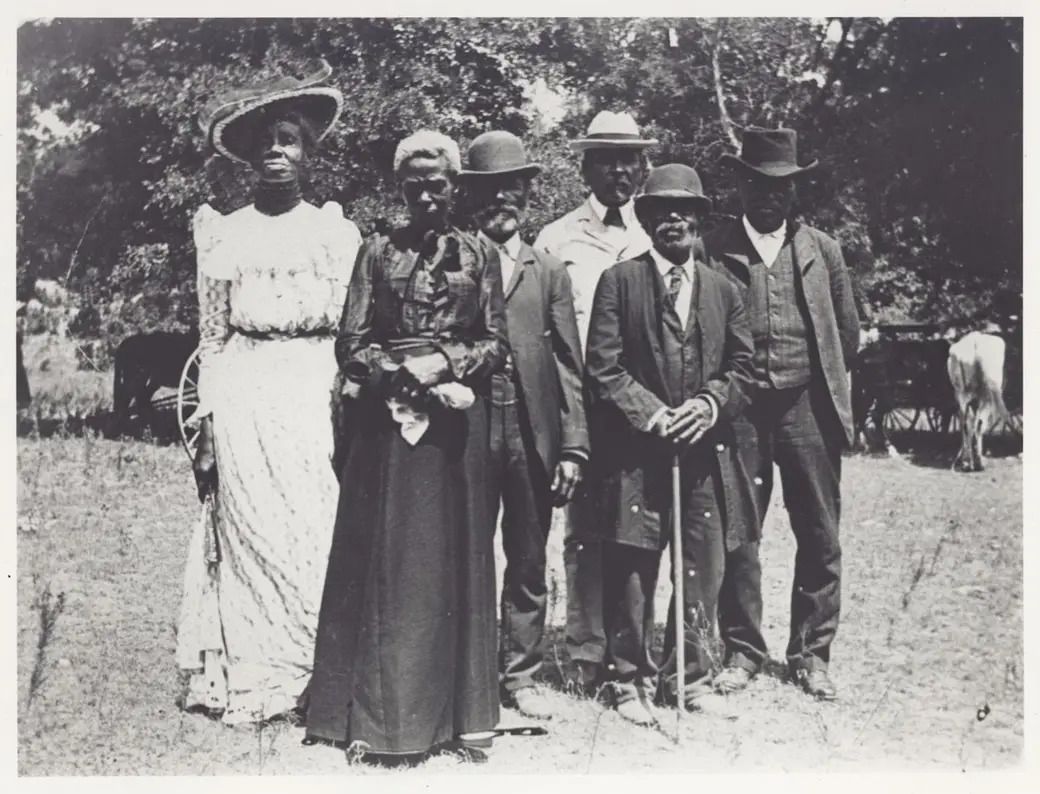 Group of elderly people on Juneteenth. Photograph by Grace Murray Stephenson of celebrations in Eastwoods Park, Austin, 1900.
Group of elderly people on Juneteenth. Photograph by Grace Murray Stephenson of celebrations in Eastwoods Park, Austin, 1900.
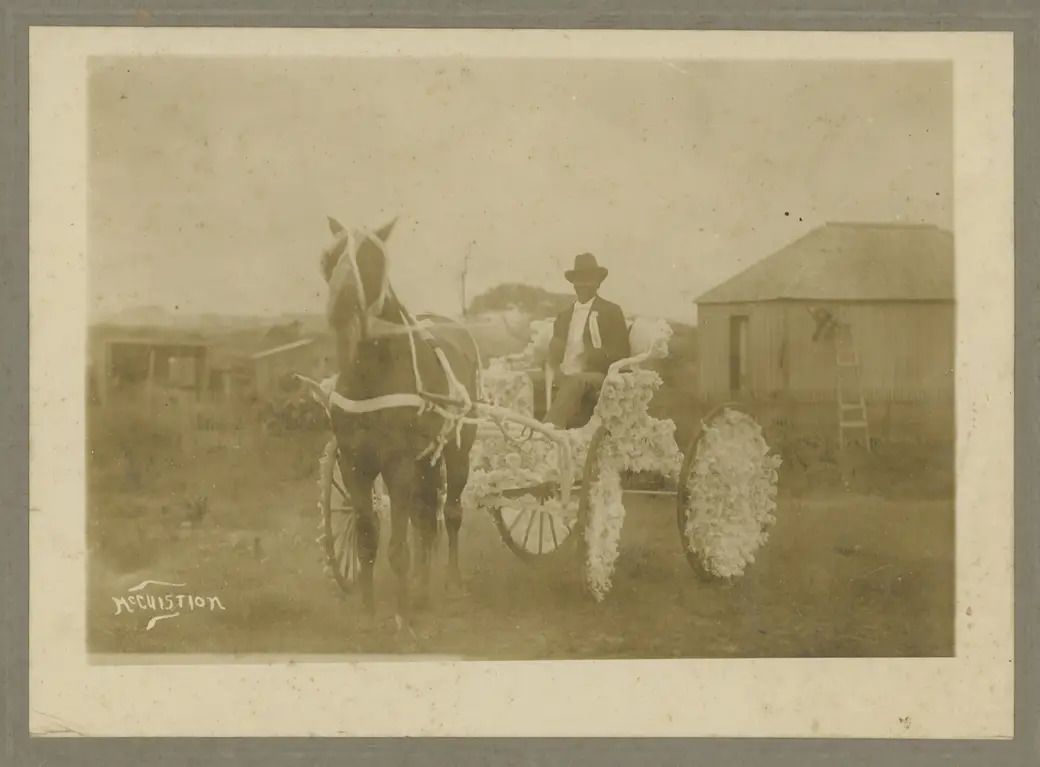 Mr. D.N. Leathers Sr., Walter Leathers' Father Celebrating Juneteenth,
driving a decorated one-horse carriage. 1913, Corpus Christi, Nueces
County, Texas.
Mr. D.N. Leathers Sr., Walter Leathers' Father Celebrating Juneteenth,
driving a decorated one-horse carriage. 1913, Corpus Christi, Nueces
County, Texas.
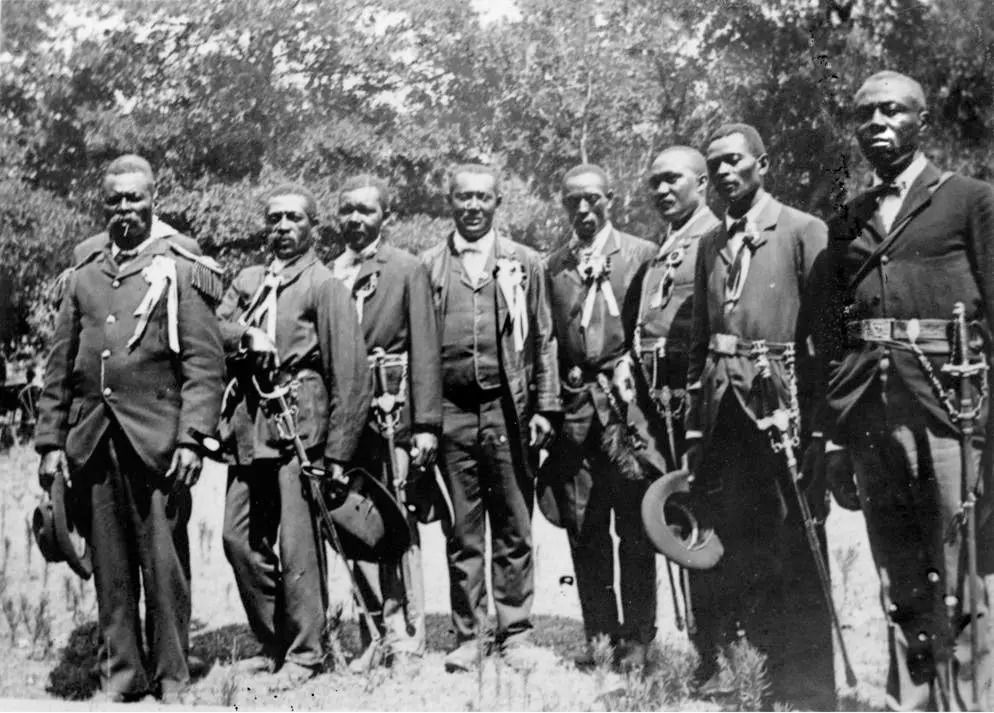 Civil War reenactors at a Juneteenth celebration at Eastwoods Park, Texas in 1900.
Civil War reenactors at a Juneteenth celebration at Eastwoods Park, Texas in 1900.
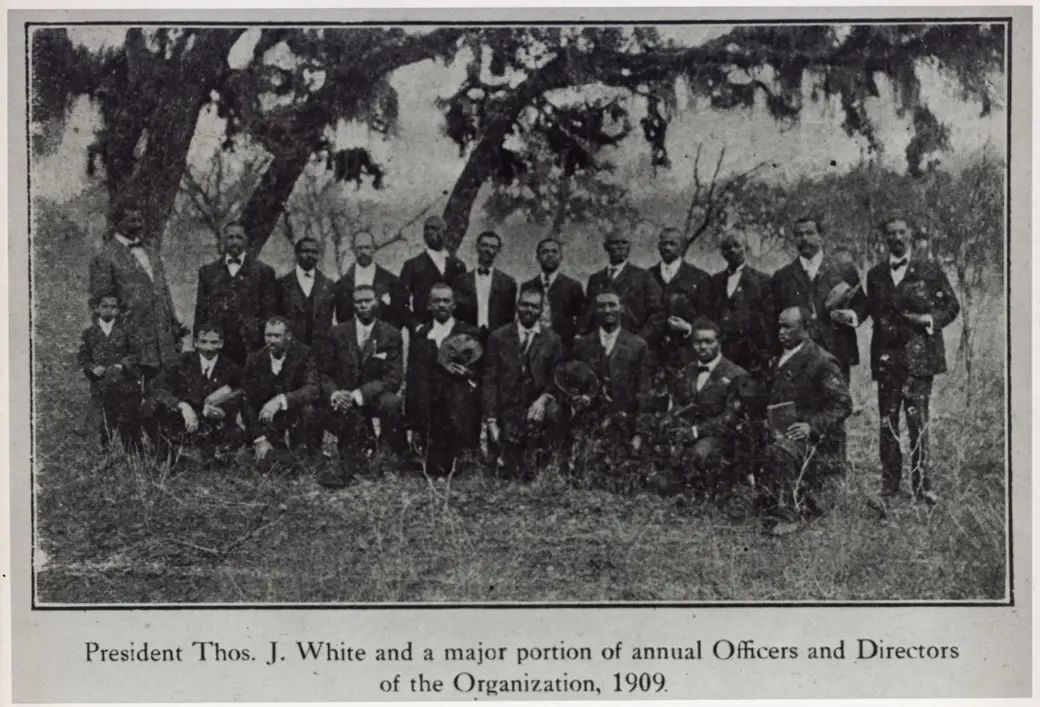 Thomas White and other members of the organization that sought to purchase Emancipation Park.
Thomas White and other members of the organization that sought to purchase Emancipation Park.
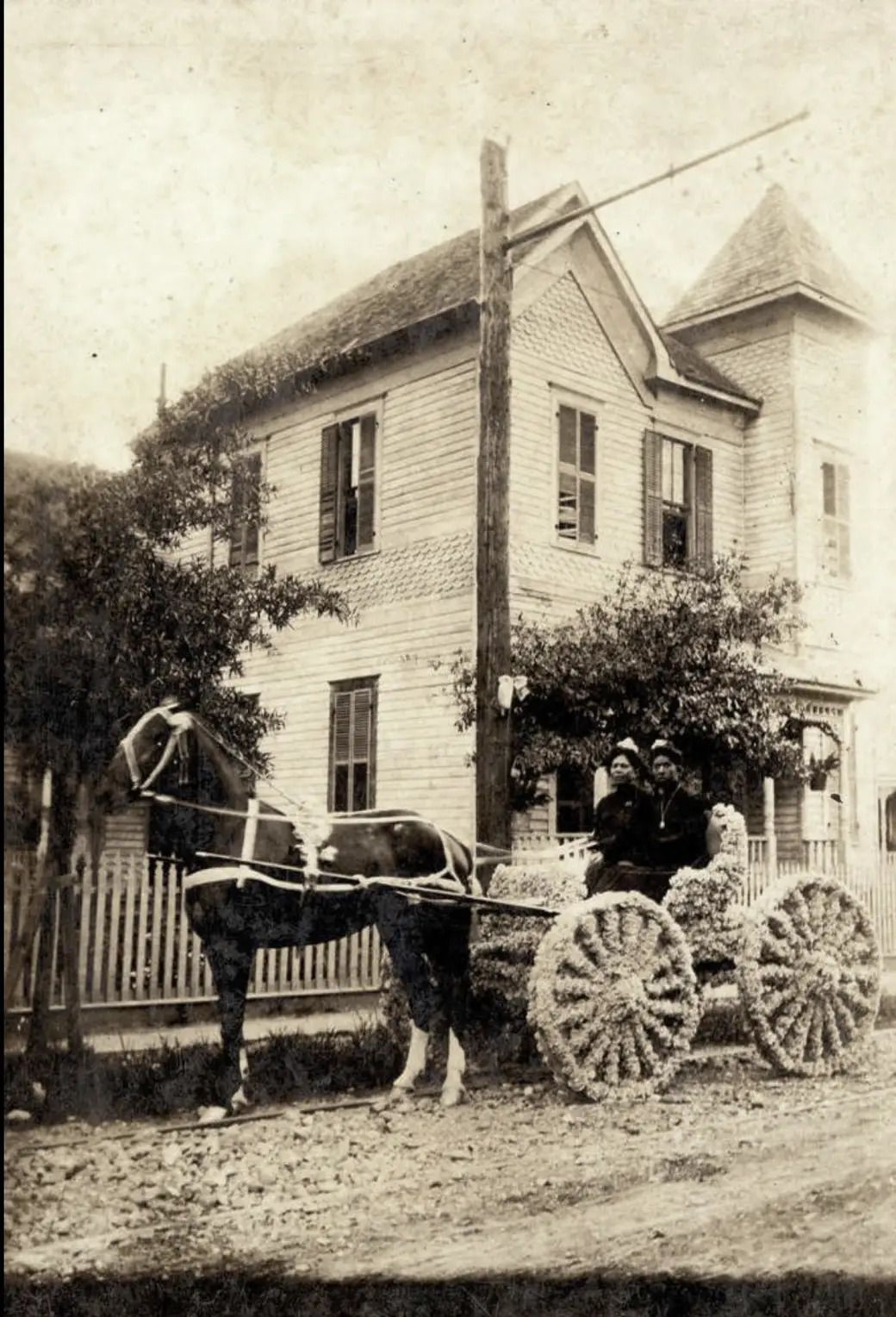 Two women in a decorated carriage, on Robin Street, Houston. ca. 1900
Two women in a decorated carriage, on Robin Street, Houston. ca. 1900
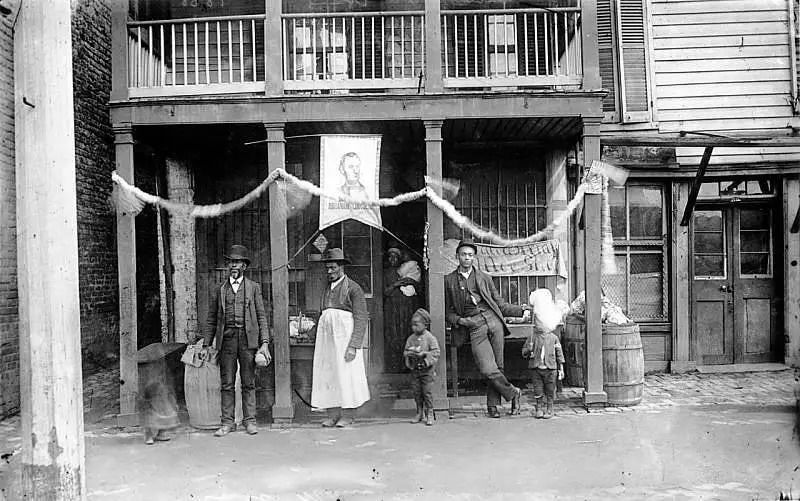 Group posing in front of a shop at E. Main Street near 21st Street in Richmond, Virginia on Juneteenth, ca. 1900
Group posing in front of a shop at E. Main Street near 21st Street in Richmond, Virginia on Juneteenth, ca. 1900
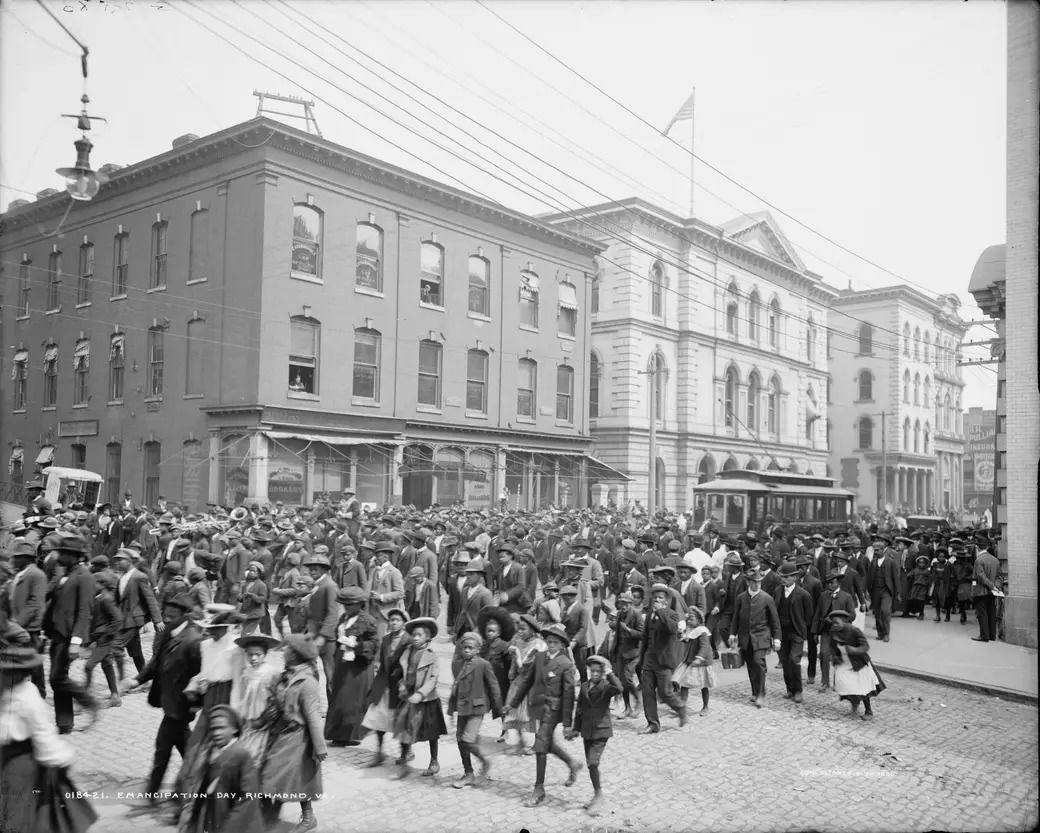 Juneteenth celebrations in Richmond, Virginia, ca. 1905
Juneteenth celebrations in Richmond, Virginia, ca. 1905
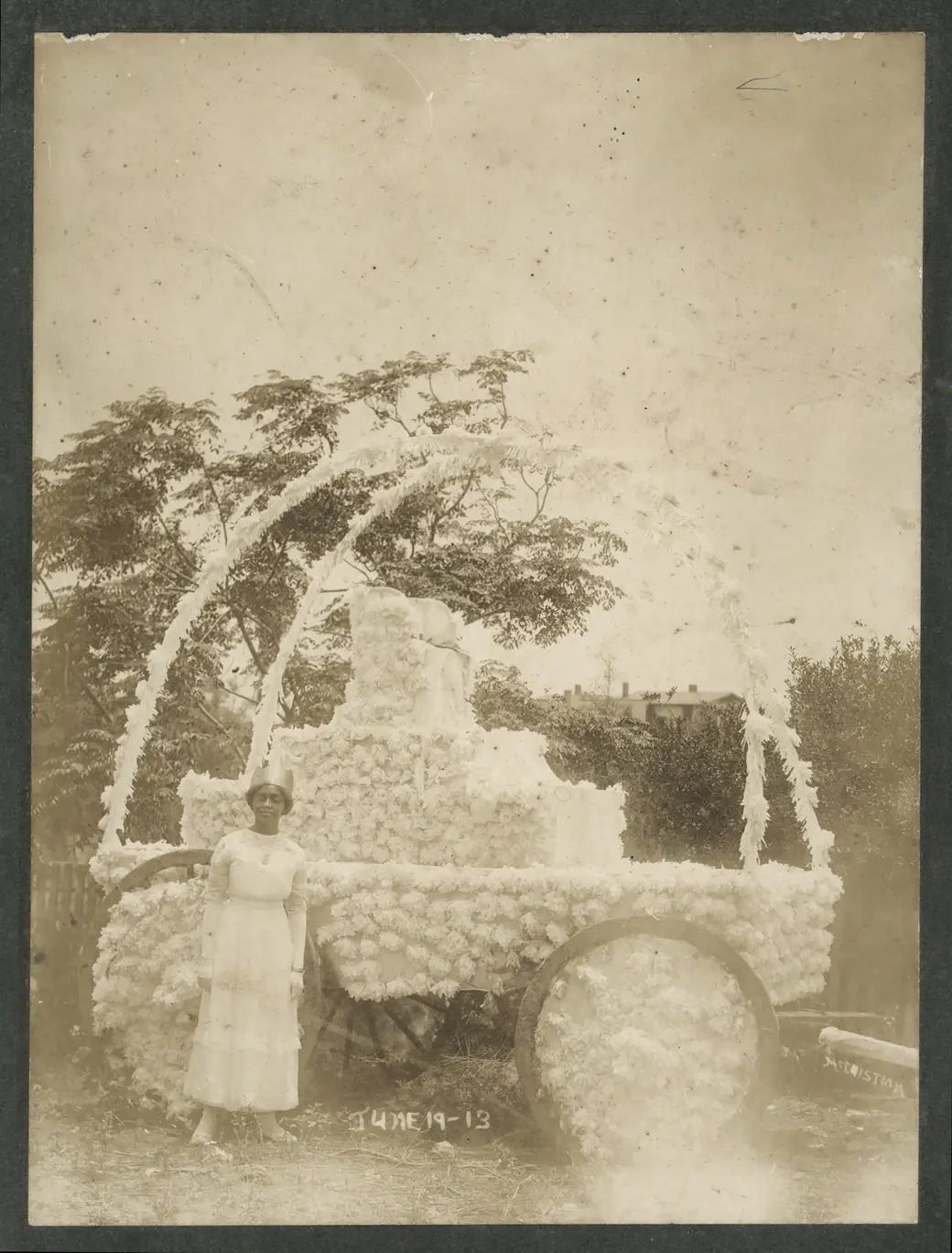 A woman stands before a decorated carriage. Photograph by George
McCuistion of Juneteenth celebrations in in Corpus Christi, Texas, 1913.
A woman stands before a decorated carriage. Photograph by George
McCuistion of Juneteenth celebrations in in Corpus Christi, Texas, 1913.
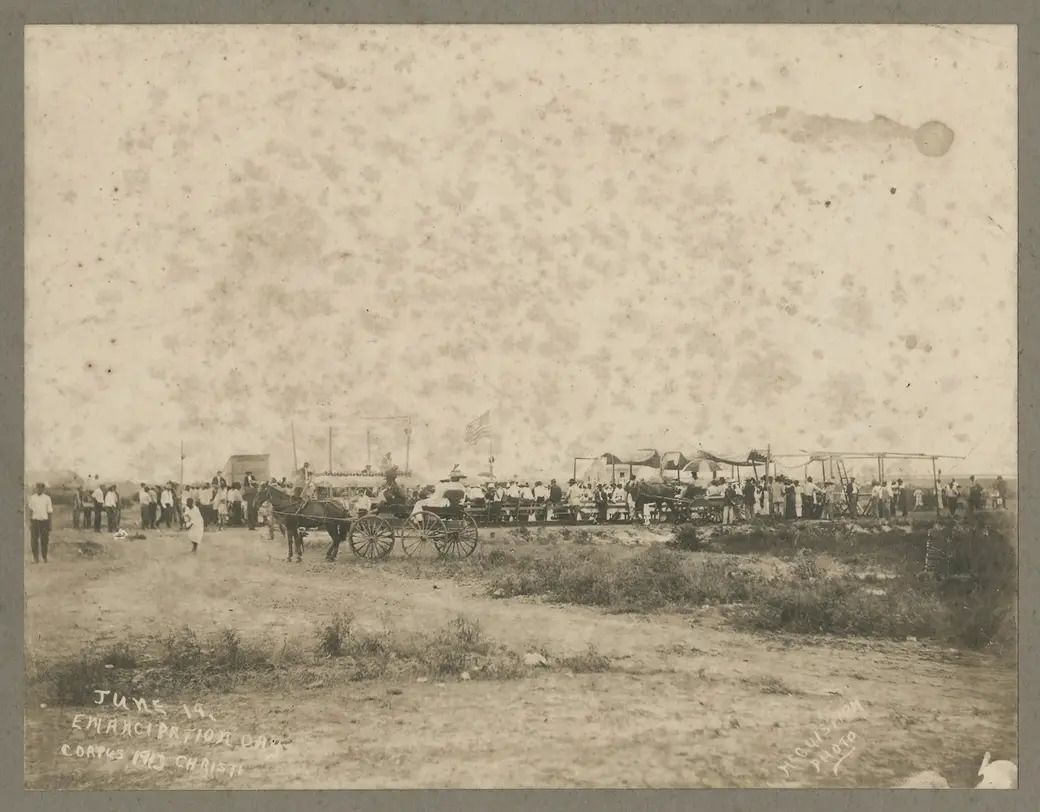 People gathered before a stage for Juneteenth celebrations in Corpus Christi, Texas, 1913.
People gathered before a stage for Juneteenth celebrations in Corpus Christi, Texas, 1913.
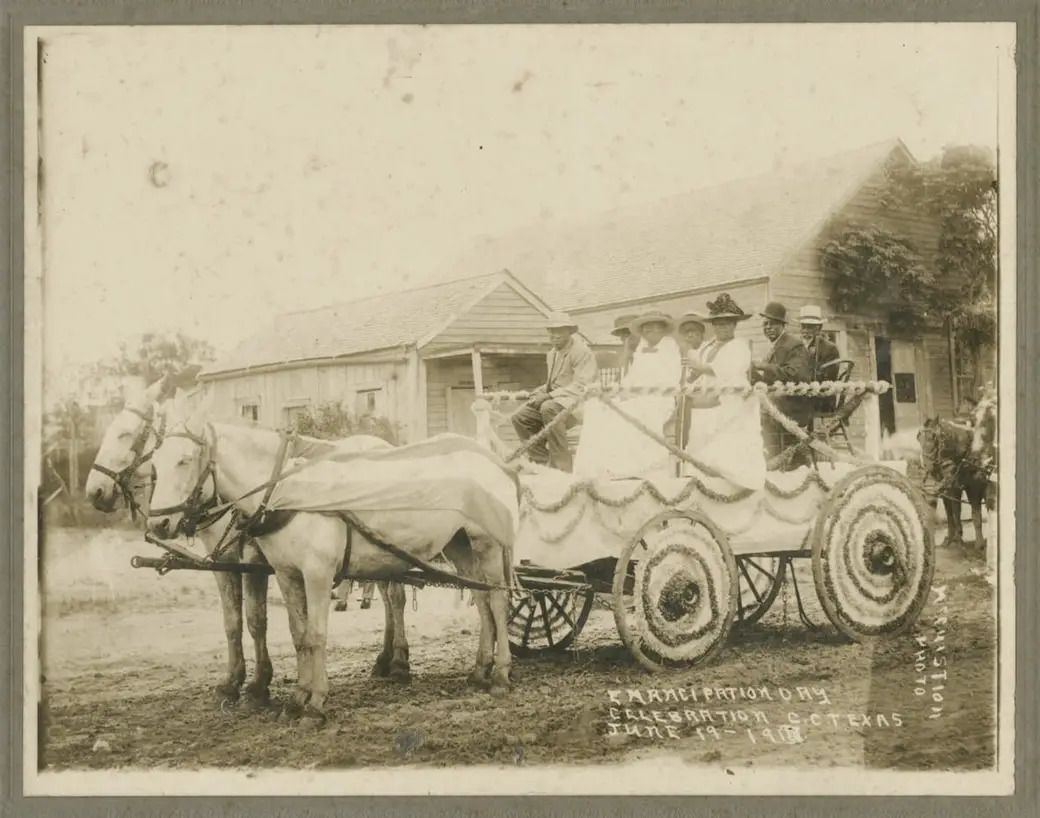 Photograph by George McCuistion of Juneteenth celebrations in in Corpus Christi, Texas, 1913.
Photograph by George McCuistion of Juneteenth celebrations in in Corpus Christi, Texas, 1913.










